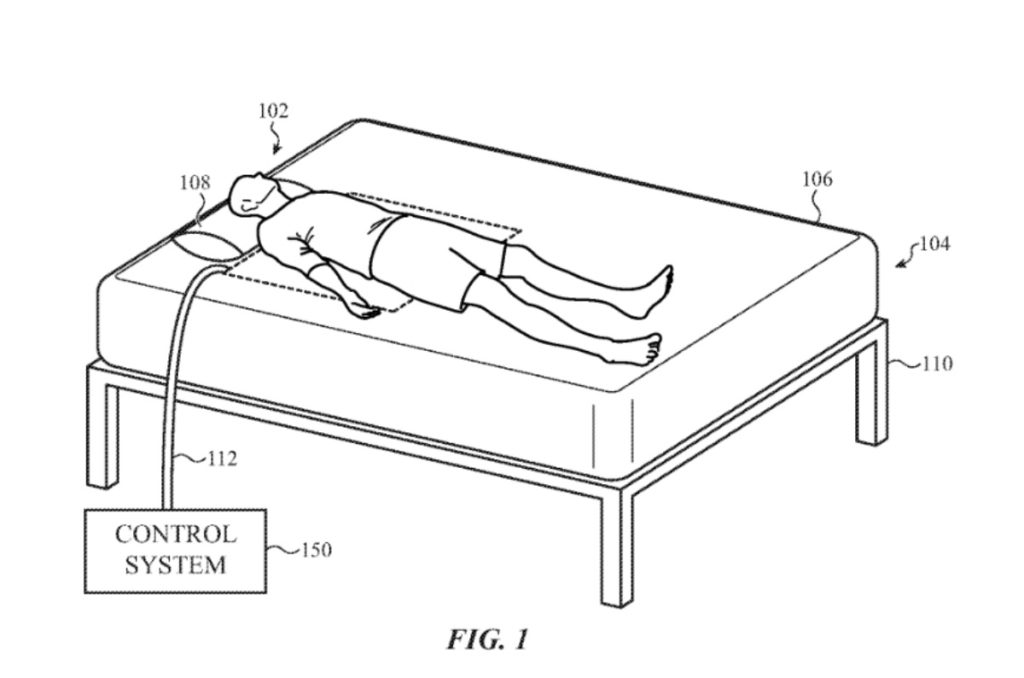iBed, anyone? A newly granted Apple patent (number US 11918381 B2) shows that Apple is looking into a “smart bed” that can measure the vital signs of one or more users.
About the patent
The patent relates generally to monitoring systems and methods for measuring vital signs of one or more users. In the patent Apple says that, traditionally, monitoring a person’s sleep or vital signs has required expensive and bulky equipment. Some systems require that the monitoring be performed away from home in a medical facility and/or require the equipment to attach to or directly contact the person, which can lead to discomfort and can lead to inaccurate analysis due to disruption of the person’s sleep.
What’s more, these systems are configured to determine the vital signs based on one type of measurement or mode of operation. Finally, these systems are configured for monitoring only a single person; these systems lack the capability of not only monitoring multiple users, but also incorporating the analysis of a first user into the analysis of a second user, whose sleep may be affected by the first user.
Apple’s idea seems to be a “smart bed” with a variety of sensors and monitors.
Summary of the patent
Here’s Apple’s abstract of the patent: “This relates to a monitoring system capable of measuring a plurality of vital signs. The monitoring system can include a plurality of sensors including, but not limited to, electrodes, piezoelectric sensors, temperature sensors, and accelerometers. The monitoring system can be capable of operating in one or more operation modes such as, for example: capacitance measurement mode, electrical measurement mode, piezoelectric measurement mode, temperature measurement mode, acceleration measurement mode, impedance measurement mode, and standby mode. Based on the measured values, the monitoring system can analyze the user’s sleep, provide feedback and suggestions to the user, and/or can adjust or control the environmental conditions to improve the user’s sleep. The monitoring system can further be capable of analyzing the sleep of the user(s) without directly contacting or attaching uncomfortable probes to the user(s) and without having to analyze the sleep in an unknown environment (e.g., a medical facility).”
Article provided with permission from AppleWorld.Today

